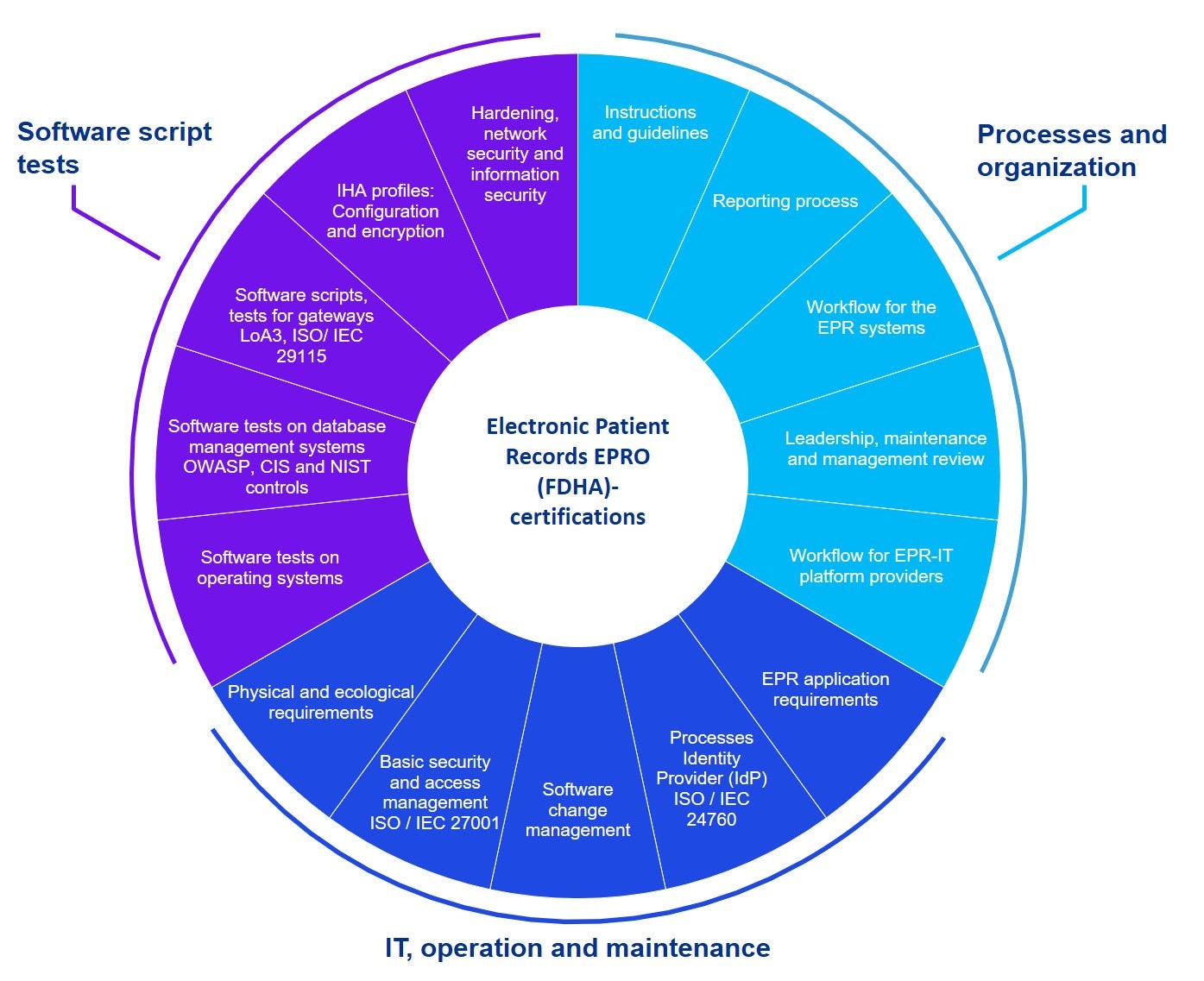Patient data available in digital form anytime, anywhere – from a certified platform.
In the past three years, certain processes have been completely digitalized, such as patient onboarding, healthcare professional onboarding (HCP), identification and authentication of the citizen or patient to obtain an electronic ID.
The Federal Act on the Electronic Patient Record (EPRA) aims to strengthen the quality of medical treatment, improve treatment processes, increase patient safety and the efficiency of the healthcare system, and promote patients' health literacy. University hospitals, private hospitals, regional hospitals, rehabilitation clinics, psychiatric clinics, nursing and retirement homes, doctors' offices, laboratories and radiology departments, outpatient care and maternity clinics are obliged to join or establish a (parent) healthcare network.








